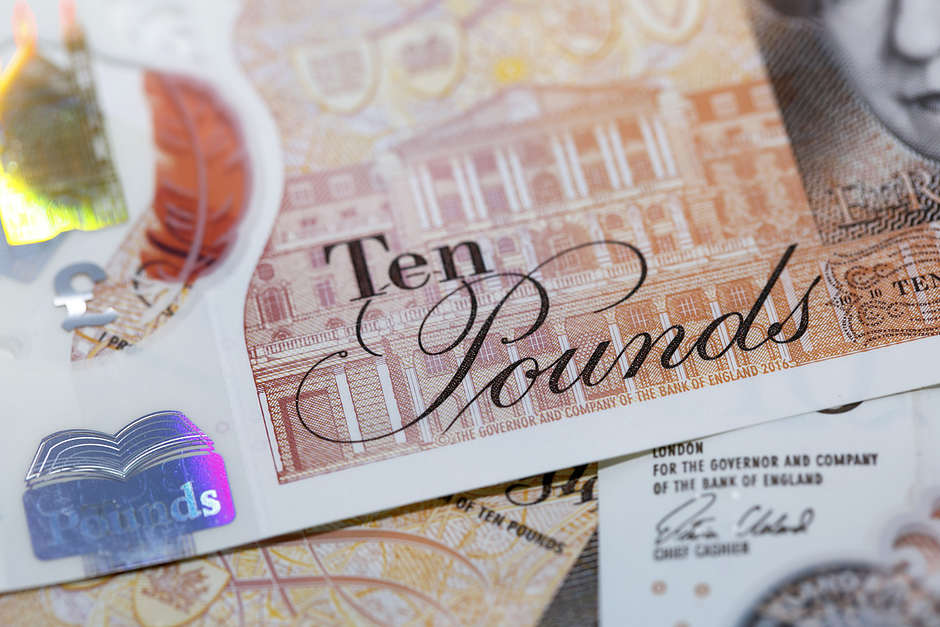GBP/USD climbs to 1.2600, away from multi-month low set on Friday on weaker USD
- GBP/USD kicks off the new week on a positive note and snaps a three-day losing streak.
- Retreating US bond yields prompts some USD profit-taking and lends support to the pair.
- Reduced bets for a December BoE rate cut underpin the GBP and further act as a tailwind.

The GBP/USD pair opens with a bullish gap at the start of a new week and for now, seems to have snapped a three-day losing streak to sub-1.2500 levels, or its lowest level since May touched last Friday. Spot prices climb to the 1.2600 mark during the Asian session and draw support from a weaker US Dollar (USD).
The USD Index (DXY), which tracks the Greenback against a basket of currencies, pulls back from a two-year top as bulls opt to take some profits off the table on the back of a sharp pullback in the US Treasury bond yields. Apart from this, an extension of the risk-on rally across the global equity markets turns out to be another factor undermining the safe-haven buck and offering some support to the GBP/USD pair.
Reports that Israel was close to reaching a ceasefire with the Hezbollah military group in Lebanon fueled optimism over some de-escalation in the long-running Middle East conflict. Adding to this, Scott Bessent's nomination as US Treasury Secretary clears a major point of uncertainty for markets and eases concerns about a dire trade war under the new Trump administration, which, in turn, boosts investors' confidence.
Meanwhile, the British Pound (GBP) continues to be underpinned by reduced bets that the Bank of England (BoE) will cut rates next month, especially after data released last week showed that the underlying price growth in the UK gathered speed. In fact, the annual UK inflation climbed back above the central bank's target and accelerated sharply to 2.3% in October, suggesting that the BoE will move cautiously on interest rate cuts.
Any meaningful USD downfall, however, seems limited amid expectations that US President-elect Donald Trump's proposed expansionary policies will boost inflation and limit the scope for the Fed to cut interest rates further. This should act as a tailwind for the US bond yields and supports prospects for the emergence of some USD dip-buying, warranting caution before placing bullish bets around the GBP/USD pair.
Pound Sterling FAQs
The Pound Sterling (GBP) is the oldest currency in the world (886 AD) and the official currency of the United Kingdom. It is the fourth most traded unit for foreign exchange (FX) in the world, accounting for 12% of all transactions, averaging $630 billion a day, according to 2022 data. Its key trading pairs are GBP/USD, also known as ‘Cable’, which accounts for 11% of FX, GBP/JPY, or the ‘Dragon’ as it is known by traders (3%), and EUR/GBP (2%). The Pound Sterling is issued by the Bank of England (BoE).
The single most important factor influencing the value of the Pound Sterling is monetary policy decided by the Bank of England. The BoE bases its decisions on whether it has achieved its primary goal of “price stability” – a steady inflation rate of around 2%. Its primary tool for achieving this is the adjustment of interest rates. When inflation is too high, the BoE will try to rein it in by raising interest rates, making it more expensive for people and businesses to access credit. This is generally positive for GBP, as higher interest rates make the UK a more attractive place for global investors to park their money. When inflation falls too low it is a sign economic growth is slowing. In this scenario, the BoE will consider lowering interest rates to cheapen credit so businesses will borrow more to invest in growth-generating projects.
Data releases gauge the health of the economy and can impact the value of the Pound Sterling. Indicators such as GDP, Manufacturing and Services PMIs, and employment can all influence the direction of the GBP. A strong economy is good for Sterling. Not only does it attract more foreign investment but it may encourage the BoE to put up interest rates, which will directly strengthen GBP. Otherwise, if economic data is weak, the Pound Sterling is likely to fall.
Another significant data release for the Pound Sterling is the Trade Balance. This indicator measures the difference between what a country earns from its exports and what it spends on imports over a given period. If a country produces highly sought-after exports, its currency will benefit purely from the extra demand created from foreign buyers seeking to purchase these goods. Therefore, a positive net Trade Balance strengthens a currency and vice versa for a negative balance.
Author

Haresh Menghani
FXStreet
Haresh Menghani is a detail-oriented professional with 10+ years of extensive experience in analysing the global financial markets.

















